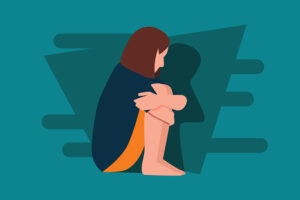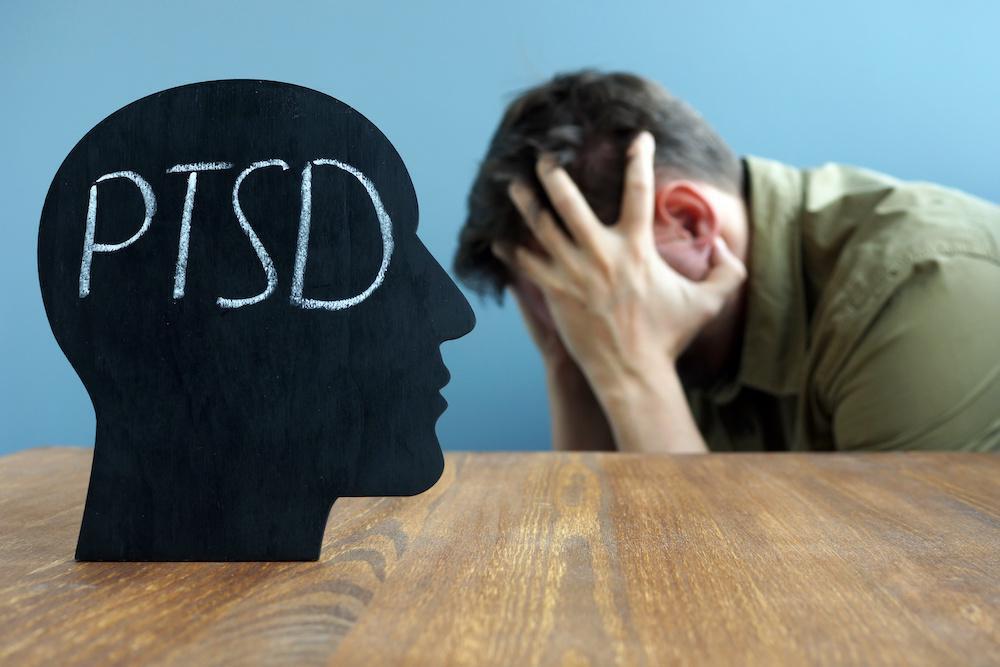It can be tough to keep your head above water when you’re struggling with post-traumatic stress disorder (PTSD). flashbacks, intrusive memories, and overwhelming anxiety can take over your life and cause you to feel like you’re going crazy. In this article, we’ll explore all about PTSD flashbacks and what you can do to deal with them.
Contents
What Are PTSD Flashbacks?

PTSD flashbacks are a common occurrence for people who have experienced trauma. They can be memories or thoughts that come back to you, often involuntarily, after a traumatic event. PTSD flashbacks can be frightening and tormenting, and they can interfere with your day-to-day life.
There is no one specific type of flashback that everyone experiences and they can vary in intensity and duration. However, some common PTSD flashbacks include: seeing sights or sounds from the traumatic event; feeling scared or panicky; experiencing intense emotions such as fear, rage, or guilt; having nightmares or intrusive thoughts about the event, and experiencing physical symptoms such as muscle tension or nausea.
Although PTSD flashbacks are usually unwelcome and distressing, they are not always causing alarm. If you experience a flashback that causes significant distress or is preventing you from functioning normally, it is important to seek help from a qualified therapist. Most importantly, remember that you are not alone in your experience of PTSD flashbacks – many people experience them during the early stages of recovery from trauma.
How Do PTSD Flashbacks Affect Someone?

PTSD flashbacks are memories that someone experiences when they are in a state of fear or anxiety. PTSD flashbacks can be intense, disturbing, and overwhelming.
They can cause people to feel like they’re back in the moment of the traumatic event, and they can be so overwhelming that they can make it difficult to function day-to-day.
PTSD flashbacks can also be triggered by things that remind someone of the traumatic event, like seeing a car that looks similar to the one that was used during the attack, hearing someone mention the attacker’s name, or encountering a place where something happened during the attack.
PTSD flashbacks can have a big impact on someone’s life, and they can be really difficult to deal with. If you’re experiencing PTSD flashbacks, there are some things you can do to help manage them.
For example, you can try to avoid things that trigger flashbacks, and you can talk about them with someone who can support you. You can also seek professional help if you find it difficult to cope. PTSD flashbacks can be a really difficult experience, but they can also be manageable if you’re aware of the symptoms and take steps to manage them.
If you or someone you know is experiencing PTSD flashbacks, please don’t hesitate to reach out for help.
Coping with PTSD Flashbacks
Although flashbacks are a common symptom of post-traumatic stress disorder (PTSD), they can be debilitating.
There is no one-size-fits-all answer to managing PTSD flashbacks, as the best way to cope will vary depending on the individual’s personal history and experiences. However, the following are some general tips that may be helpful for many people:
1. Talk about the flashbacks with a trusted friend or family member. Sharing your feelings and experiences can help you work through them together and build support networks that can be invaluable during difficult times.
2. Avoid alcohol and other drugs if possible, as they can further increase the intensity of PTSD flashbacks. Instead, try to relax and take stress relief measures such as exercise or meditation.
3. Make a list of things that make you happy, and focus on spending time doing those things as often as possible. This can provide a sense of stability and can help to counteract the feeling of anxiety that often accompanies flashbacks.
4. Avoid ruminating about the flashbacks or dwelling on your negative thoughts about them. Instead, try to take action to address the underlying causes of the flashbacks, such as stress or trauma-related memories.
5. Seek professional help if necessary. A therapist or counselor can provide guidance and support as you work through your flashbacks. They can also provide resources for coping with PTSD in general, should you need them.
6. Remember that PTSD is a chronic condition, which means it will likely require ongoing treatment over time to maintain progress. So don’t be discouraged if initial attempts at coping don’t seem to be working; give it time and keep trying new strategies until you find something that works for you.
If you or someone you know is struggling with PTSD flashbacks, please don’t hesitate to seek help. There are resources available to help you get the support you need.
Tips for Avoiding PTSD Flashbacks

Flashbacks can be a tricky thing to write, as they can evoke strong emotional responses in readers. In this article, we will outline some tips for avoiding flashbacks written to help you craft more effective narratives.
Recognize the signs of a flashback
Flashbacks can be a sign of an underlying issue. If you notice any of the following signs, it might be helpful to see a therapist:
1. You feel overwhelmed or trapped by the flashback.
2. The flashback feels like it’s taking over your life.
3. You have difficulty focusing on anything else while the flashback is happening.
4. The flashbacks are accompanied by feelings of intense dread, terror, or nausea.
Get help if you experience a flashback
If you’re experiencing a flashback, there are some things you can do to help. First, make sure you understand what’s happening. Flashbacks usually involve memories from the past that come back unexpectedly. Sometimes people experience flashbacks when they’re thinking about the past, and other times they’ll have them when they’re experiencing the past.
If you can, try to focus on the present. This may help you avoid reliving the flashback in your mind. If that’s not possible, try to relax and take slow, deep breaths. This can help ease the intensity of the flashback. Finally, if you need to talk to someone about what’s happening, there are places you can go for support.
Understand why flashbacks happen
Flashbacks are a common experience for many people, but they can be difficult to manage. Here are some tips for avoiding flashbacks and healthily managing them:
Know why flashbacks happen. Flashbacks can occur when we revisit a traumatic event from our past. The nature of the flashback will depend on the individual’s history, trauma exposure, and current stress levels. Some people may have short, isolated flashbacks that are benign, while others may have more frequent and intense flashbacks that represent a mental health issue.
Take steps to prevent flashbacks
Flashbacks are a common occurrence in mental health and addiction treatment, but they can be difficult to manage. Here are some tips to help you avoid flashbacks:
1. Make sure you have a support system. Talking about your experiences and feelings with someone supportive can help you manage flashbacks better.
2. Try not to spend too much time on memories or thoughts of the past. This can lead to flashbacks. Instead, focus on the present and future.
3. Avoid stressful situations. The more stress you experience, the more likely you are to have a flashback. Try to avoid situations where you feel overwhelmed or anxious.
4. Be aware of your own body. If you experience a flashback, try to focus on your body and what is happening around you. This can help reduce the intensity of the flashback and help you regain control of your thoughts and emotions.”
Conclusion
If you are experiencing PTSD flashbacks, then this article is for you. We have discussed the different types of PTSD flashbacks and provided tips on how to deal with them. We also offer advice on self-care strategies that can help lessen the impact of flashbacks and improve your overall quality of life. Thanks for reading.
Hope this article was of help to you! If you are suffering from mental health disorders, you may seek help from Therapy Mantra. We have a team of highly trained and experienced therapists who can provide you with the tools and skills necessary for overcoming mental health disorders. Contact us today to schedule an online therapy or download our free Android or iOS app for more information.


